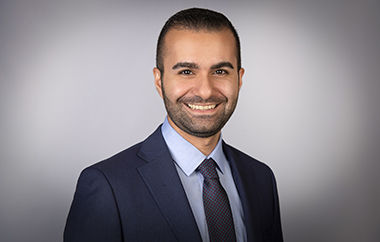PhD in Biochemistry and PhD in Chemical and Process Engineering
Current position: Assistant Professor, School of Engineering, Australian College of Kuwait, Kuwait
Research focus: anaerobic digestion, green energy, and waste management
Jean focused on researching the usage of anaerobic digestion to valorise organic by-products, on understanding the biochemical parameters affecting the bioenergy production as well as on intensifying the process using several mechanical, chemical, and physical pretreatments. He closely studied the use of grape pomace from wine production and olive pomace from oil production in his home country Lebanon. He developed and realised a prototype bioreactor and worked on the optimisation of the inward processes. In further studies, Jean aimed at valorising local microalgae and lipid-extracted residues as well as whey cheese from diary industries and coffee grounds for bioenergy production.
CV as submitted for the Green Talents award (2019):
Saint Joseph University of Beirut, Lebanon
Research focus: anaerobic digestion, green energy, and waste management
Nowadays, a large part of the energy consumed worldwide is covered by non-renewable fossil resources, such as coal, oil, and natural gas. These resources are not only limited but also have negative effects on the environment due to the emission of greenhouse gases into the atmosphere. Therefore, changing society’s dependence on petroleum-based sources to an increased utilisation of renewable biomass-based resources is crucial for a more sustainable development. Anaerobic digestion is used around the world as a waste management technology and a source of renewable energy. Bioenergy, especially biogas produced through this process, is one of the highly promising alternatives to energy derived from fossil fuels due to several significant merits. It is moreover a versatile energy source since it can be used to produce heat, electricity combined with heat (cogeneration), or biofuel.
Jean focussed on researching the usage of anaerobic digestion to valorize organic by-products, to understand the biochemical parameters affecting the bioenergy production, as well as to intensify the process using several mechanical, chemical and physical pretreatments. He closely studied the use of grape pomace from wine production and olive pomace from oil production in his home country Lebanon. He developed and realised a prototype bioreactor and worked on the optimisation of the inward processes. In further studies, Jean aimed at valorizing local microalgae and lipid-extracted residues, as well as whey cheese from diary industries and coffee grounds, for bioenergy production. Moreover, he focused on green treatment of sludge produced from wastewater treatment plants.
Jean’s expertise in biology, biochemistry, chemical and process engineering combined with economic knowledge attracted attention of the jury. They were impressed by Jean’s great interest in and commitment to innovation and in transferring his results to practical use.






